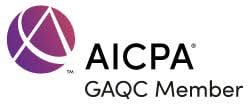


Nonprofits have to make every dollar count. Faced with increased funding competition, evolving technology, and changing regulations, nonprofits rely on Templeton’s nonprofit team for a myriad of requirements.
We have deep experience working with a full span of nonprofits ranging from civic, cultural organizations, foundations, faith-based organizations and educational institutions.






In general, nonprofits can’t use restricted assets for purposes other than those specified by the original donor. Board-designated assets (or board-designated funds) are another matter. These are unrestricted funds that have been reserved by an organization’s leadership for a special purpose or a period of time. Your board can later
Even not-for-profits that make realistic budgets and hold adequate funds in reserve to cover shortfalls can run into financial emergencies — particularly if they lose a major funding source. But if your organization has an endowment, its income may be able to help ease cash-flow issues, even long-term ones. Restrictions
On July 4, 2025, President Trump signed the One, Big, Beautiful Bill Act (OBBBA), which contains several provisions that may affect your not-for-profit organization. Let’s take a look at a couple of the bigger changes. Excess compensation tax Since 2018, an excise tax has applied to nonprofits that compensate “covered employees”
WEST PALM BEACH
Esperante Building
222 Lakeview Avenue
Suite 1200
West Palm Beach, FL 33401
(561) 798-9988
Fax: (561) 798-4053
FORT LAUDERDALE
The Main
201 East Las Olas Boulevard
Suite 1650
Fort Lauderdale, FL 33301
(954) 333-0001
Fax: (954) 765-0719